If you love electric cars in the UK, you need to get miles per kWh. This helps make your electric vehicle go further and perform better. Electric cars use energy differently than petrol cars, making it a fun numbers game. Knowing how efficient your car is can also save you money.
Switching to an electric car means thinking differently about energy. Miles per kWh tells us how far the car can go and its energy use.
Key Takeaways
- Miles per kWh is a pivotal metric for assessing electric vehicle efficiency.
- Understanding energy consumption translates to improved electric car performance.
- Kilowatt-hour efficiency is essential for extending electric vehicle range.
- An effective energy efficiency rating helps reduce EV energy usage.
- Realistic electric vehicle mileage figures equip drivers to optimise their EV experience.
- Familiarity with kWh per mile calculations can lead to lower operational costs.
Making Sense of Electric Vehicle Efficiency
Electric vehicles (EVs) bring new ways to look at how cars use energy. Unlike old cars, EVs focus on how they help the planet. We now use miles per kWh instead of miles per gallon (MPG). This gives a better view of how EVs use energy.
We need to understand the change from MPG to miles per kWh. It’s not just about different measurements. It’s about thinking of driving in a new, planet-friendly way. Moving from MPG to miles per kWh means driving becomes about saving energy, not just fuel.
The Transition from MPG to Miles per kWh
Learning about electric vehicle efficiency means using miles per kWh to see how good they are. This change makes us see the hidden benefits of EVs compared to old cars.
Imperial vs Metric: Decoding the Efficiency Ratings
In the UK, we’ve made electric car measures similar to MPG to help understanding. In Europe, measures like kWh per 100km are used. This makes it easier for everyone to get how efficient EVs are.
| Efficiency Measurement | UK (Imperial) | Europe (Metric) |
|---|---|---|
| Initial Basis | MPG (miles per gallon) | L/100km (litres per 100 kilometres) |
| EV Efficiency Unit | Miles per kWh | kWh per 100km |
| Translation Context | Direct conversion to familiar MPG | Alignment with pre-existing fuel efficiency metrics |
| Trend & Adoption | Increasing tendency towards miles per kWh | Potential universal shift to electric efficiency as standard |
This mix of systems shows we are moving to a new way of seeing car efficiency. It helps us think in terms of energy saving rather than just fuel saving. This change is a big step towards an all-electric future for cars.
Demystifying Electric Vehicle Energy Consumption
Electric vehicles, or EVs, are quite interesting when we talk about energy use. There are many things that affect how much energy an EV uses. For example, keeping the car warm or cool, and how much stuff you have in it. Another important thing is the kilowatt (kW) rating. It tells us how much power the EV uses and how fast it can charge.
EVs are great because they can go fast right away. This is because they get power from their batteries very quickly. But, this also means they use more energy. Knowing about AC and DC kW ratings is important. It helps us understand how well an EV can charge. AC charging is slower but steady. DC charging is much faster but uses more energy.
Now, let’s look at a table that shows different kW ratings for AC and DC charging. It also shows how these ratings change how long it takes to charge an EV:
| Charging Type | AC kW Ratings | DC kW Ratings | Approximate Charging Duration |
|---|---|---|---|
| Standard AC Charging | 3-22 kW | N/A | 8-12 Hours |
| Rapid AC Charging | Up to 43 kW | N/A | 2-3 Hours |
| Rapid DC Charging | N/A | 25-100 kW | 30-90 Minutes |
| Ultra-Rapid DC Charging | N/A | 100-350 kW | 15-30 Minutes |
Each EV has a limit on how fast it can charge using a rapid charger. Knowing about the different ways to charge is key to using your EV well.
The takeaway here is a simple one:
It’s important to know about EV energy use and what affects it. This helps us get the most out of electric cars.
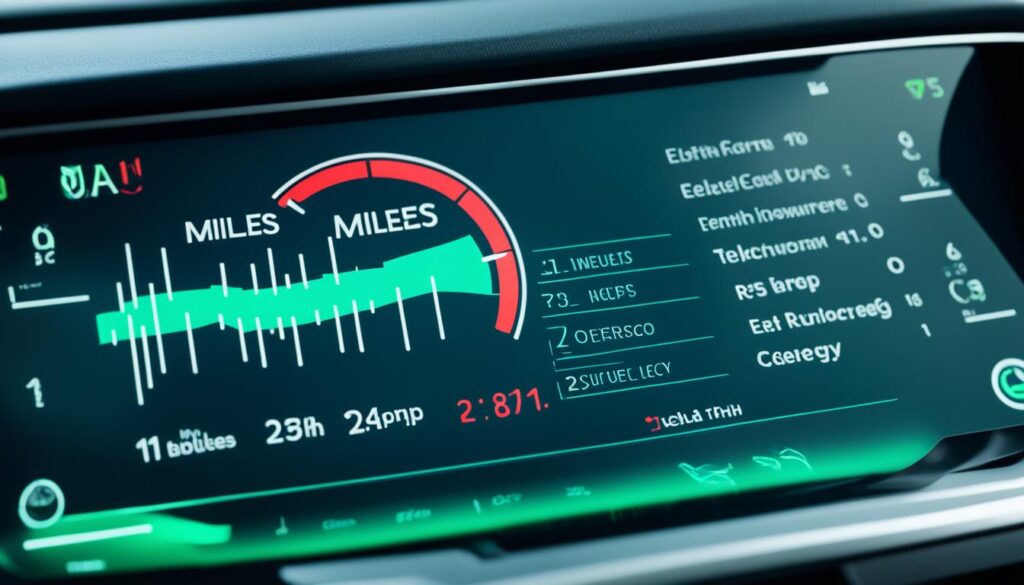
For EV owners, understanding these things is crucial. It helps them use their EVs better. This means they can save money and help the environment.
Miles per kWh: Determining Your EV’s Performance
It’s key to know how miles per kWh shapes your electric vehicle’s efficiency. This tells us how well your car uses energy to travel distances in different situations.
Calculating Real-World Efficiency
Looking at my car’s use, I find out its efficiency easily. I just divide the distance by the kWh used. This shows me how I can save on energy and help the planet.
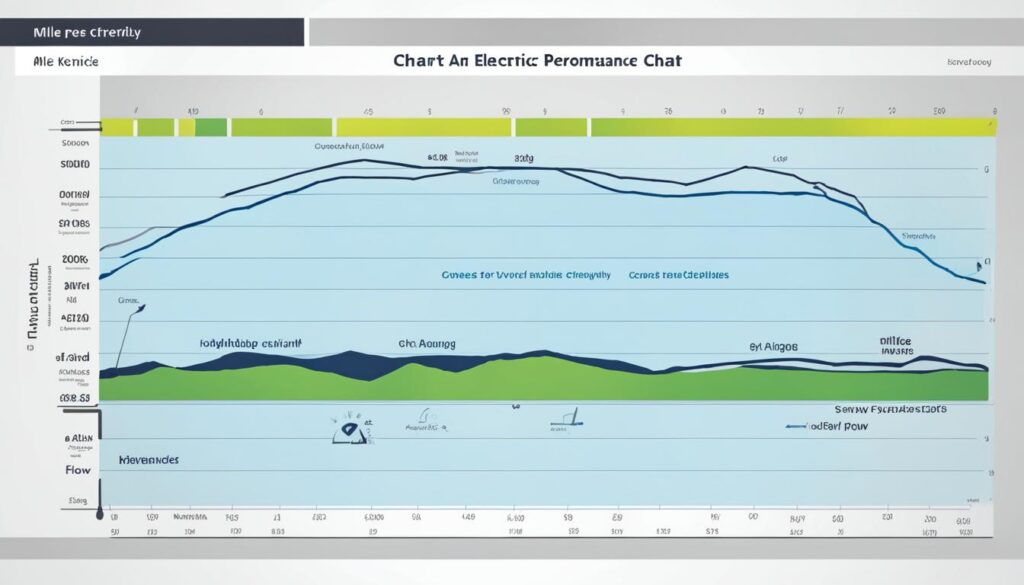
How Driving Style and Conditions Affect kWh Usage
My driving style really impacts how efficient my vehicle is. Driving smoothly saves power, unlike rushing, which uses more energy. Fast driving and lots of starting and stopping use lots of battery power.
Where and how I drive also matter. Hills or bad weather make the car use more energy. Understanding this helps me drive better. So, I save energy and make my car go further.
Here’s a table to explain how driving differently changes my car’s efficiency:
| Condition | Driving Style | Average miles per kWh |
|---|---|---|
| City Traffic | Smooth | 4.5 |
| Highway | Aggressive | 3.0 |
| Hilly Terrain | Conservative | 3.8 |
| Adverse Weather | Adaptive | 3.6 |
In short, miles per kWh is vital for my car’s efficiency. Using less energy and adjusting how I drive helps me and the environment.
Conclusion
I now understand that knowing about electric vehicle efficiency is key. It matters a lot when looking at how far a car goes on electricity. This is known as miles per kWh. Different electric cars will use energy in different ways. So, checking the miles per kWh helps us see how good an electric car is.
Learning about EV performance showed me a lot. Things like how you drive and the weather can change how well your electric car does. By checking how far I go and how much electricity I use, I learn what my car can do. This helps me use my car’s energy better.
To make my car go further, I can change how I drive. I also need to keep in mind things that make my car use more energy. By doing this, I help the planet and save money. We all need to keep learning about electric vehicle efficiency. This way, we can make the most of our electric cars every day.





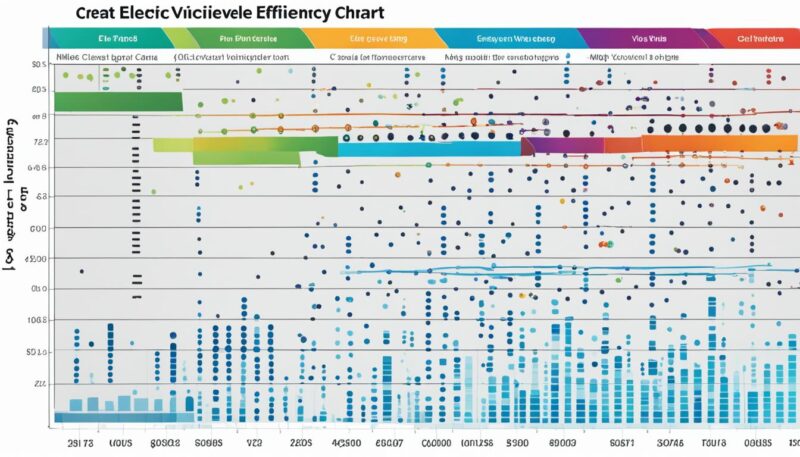

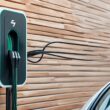
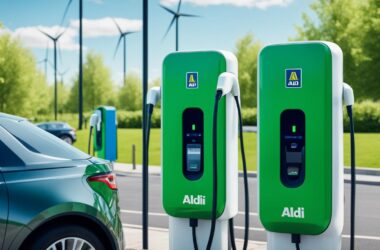
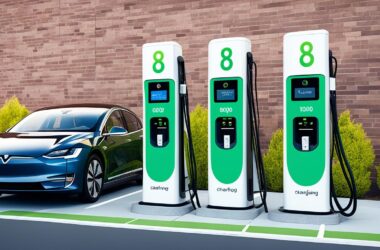
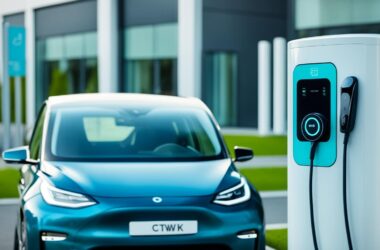
you are truly a just right webmaster. The web site loading velocity is incredible. It kind of feels that you’re doing any unique trick. In addition, The contents are masterpiece. you have performed a fantastic job on this topic!
Great write-up, I’m regular visitor of one’s site, maintain up the excellent operate, and It’s going to be a regular visitor for a lengthy time.
Does your blog have a contact page? I’m having a tough time locating it but, I’d like to shoot you an email. I’ve got some creative ideas for your blog you might be interested in hearing. Either way, great site and I look forward to seeing it improve over time.
Enjoyed reading through this, very good stuff, regards.
I have read a few good stuff here. Definitely worth bookmarking for revisiting. I surprise how much effort you put to make such a fantastic informative site.